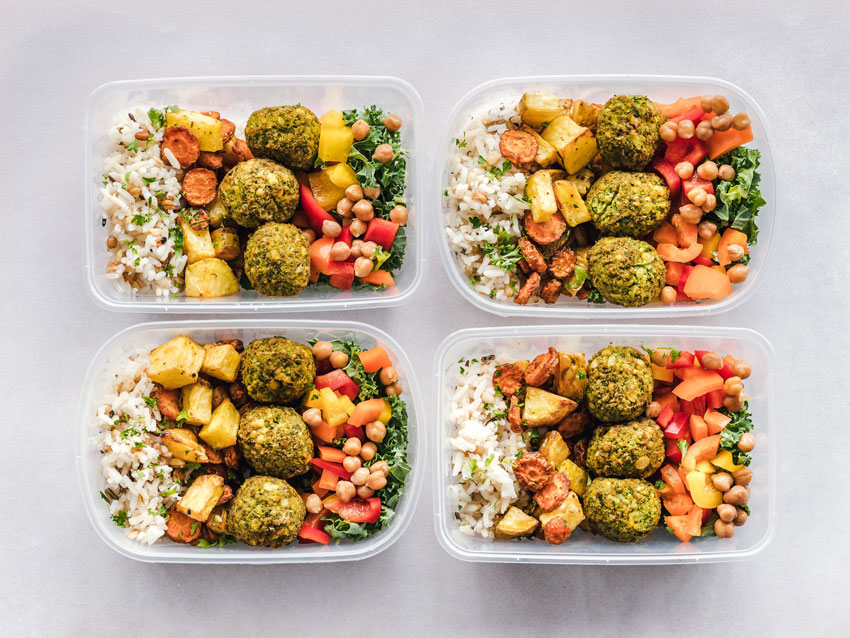6 Self-improvement Tips You Can Start Right Now

Self-improvement is a popular term these days. Chances are you’ve heard it used before either on a podcast, in a blog post, or on TV. But what exactly does self-improvement mean? What does it entail? Who is it for and how do you start improving yourself?
Literally speaking, self-improvement is the constant practice and study of improving your life in different areas, including but not limited to your health, your career, your relationships, and your mental wellness. It is a concept that applies to anyone who is seeking to develop new habits and break bad ones, achieve new goals, get out of a rut, or just want to continually better themselves.
Knowing where to start is the tough part. Luckily, there are thousands of resources available to you in the form of podcasts, blogs, audiobooks, YouTube channels, and traditional books. To get you going, we’ve compiled a list of popular self-improvement tips that you can start right now.
Become intentional with your diet

We are a society that thrives off of the idea of being busy, and who can blame us? We’re constantly connected to each other thanks to our phones, meaning that it’s almost impossible to leave work at work. Studies have shown that we subconsciously believe that being busy is equated to being successful, so we fill our metaphorical plates to the brim every day. Between balancing careers, family, relationships, and personal goals, it’s likely you feel like time is not on your side. Oftentimes, when things get busy, the first thing we put on the backburner is a well-planned, healthy, and balanced diet. This actually causes more stress.
In addition to physical health risks like obesity, poor heart conditions, and premature aging, a poor diet can also affect your mental and emotional health. Those whose diets regularly include only whole foods, like vegetables, fruits, fish, meat, and whole grains are less likely to develop anxiety and depressive disorders than those who consume a diet full of refined grains, sugar, and processed foods.
If improving your diet is something that interests you, consider investing in a nutrition-focused diet plan customized to your specific health goals. Though mainly eating whole foods is the key to overall health, the key to the overall quality of life is practicing moderation. Just because you decide to better your diet doesn’t mean you have to give up completely on the foods you love. Adopt a healthy eating lifestyle that allows room for balance every once in a while.
Focus on getting enough quality sleep

Similarly to proper diet, sleep is another aspect of our lives where priority falls low on our lists. Poor sleep over a prolonged period can lead to obesity, heart issues, stress, depression, and anxiety. Though a full eight hours of sleep isn’t realistic or achievable for everybody, it is important to strive for as close to eight as possible, even if that means leaving unfinished work or chores for tomorrow.
Just as important as the quantity of sleep you’re getting is the quality of sleep you’re getting every night. How do you know if you’re not getting deep, quality sleep? Your sleep quality needs improving if it takes you more than 30 minutes to fall asleep after getting into bed, if you wake up more than once throughout the night, or if you have been diagnosed with insomnia.
To fix this, consider trying these simple solutions:
- Turn off electronics at least 30 minutes before bedtime
- Use a planner to plan out your next day instead of letting it keep you up at night trying to remember
- Avoid caffeinated beverages after 12 PM
- Develop a relaxing nighttime activity such as showering or taking a bath, reading, playing an instrument, journaling, or listening to soothing music
- Keep your room dark and on the chilly side
- Try to get in bed at the same time every day to get your body into a routine
Start practicing body positivity

While proper diet and exercise are both large components of the self-improvement journey, developing healthy self-esteem and body-image are equally, if not more, important. With magazines, movies, TV shows, and Instagram subliminally telling us that our stomachs should be flat, our legs toned, and our booty round, it’s hard to not compare ourselves to the unrealistic standards that surround us.
If you’re someone who struggles with body-image and self-love, you’re not alone. The following tips will help kickstart your self-improvement journey towards loving your body and away from body shame:
- Seek out media and social media influencers who promote self-love and body positivity
- Avoid and unfollow media that portray unrealistic physical standards
- Buy fashionable clothes that fit so you don’t have to feel uncomfortable all day in clothes that don’t
- Look in the mirror and pride yourself on things you LOVE about your body and appearance
- Create a body-positive affirmation to repeat regularly to yourself throughout the day
- Mindfully exercise and eat well out of love, respect, and care for your body, not out of shame and punishment
Find a workout you enjoy

Getting regular exercise (3-5 workouts per week) has endless health benefits that will help you feel motivated and accomplished on your self-improvement journey. Besides the obvious benefit of burning fat and toning muscle, regular physical activity also decreases your risk for heart disease and heart attack, lowers cholesterol levels, reduces your risk of type 2 diabetes and cancer, promotes better sleep, increases energy throughout the day, and aids in better digestion.
The key is to use trial and error to find the type of workout that you enjoy enough to do regularly. Think outside of the typical gym membership and research specialized fitness classes in your area like kickboxing, CrossFit, yoga, martial arts, spin, HIIT boot camps, or even traditional gyms that offer a wide range of daily classes. Before committing with a membership, ask if you can start out with a trial instead, so you can choose the workout you really enjoy before making the commitment and investment.
Make time for a hobby that excites you

In today’s fast-paced world, having time for a hobby seems like a luxury only the retired get to enjoy, but that doesn’t have to be the case! Whether it’s making art, playing an instrument, or learning photography, developing a hobby and practicing it regularly holds many benefits, like giving you an outlet to relax and helping you to release some stress.
Additionally, hobbies connect you with people that have similar interests and, in turn, help you to expand your network and circle of friends. They also make you more interesting and give you something to talk about around the watercooler at work or at happy hour with your friends.
Make the time for a hobby by realizing that even though it may not feel like it, chances are that you are not too busy to pursue your interests. Take a look at your schedule for the week and fill in pockets of open time with your hobby instead of additional work, binge-watching, or social media scrolling. You may just find that the feeling of relaxation you get from a hobby is even more satisfying than the feeling of relaxation you get from those other mindless habits.
Declutter your life
If the peace and tranquility of Marie Kondo’s persona isn’t enough evidence that decluttering and organizing your life is a game-changer, then I don’t know what is. Most of us don’t need a scientist to tell us that clutter and disorganization creates stress and anxiety, but what many of us don’t realize is that the opposite also holds true — our depression and anxiety are often represented in the state of our surroundings — our desks, our cars, and our homes. Piled up dishes may symbolize more than just busy lives or a case of the lazies, but in fact, it might indicate a bigger internal issue.
To start the process of decluttering your life, begin to adopt these simple habits:
- Wash the dishes immediately instead of setting them in the sink
- Make your bed as soon as you get out of it
- Give yourself enough time in the morning to do a quick tidy-up before heading out the door for work, so you can come home to a tidy, welcoming home
- Donate household items you no longer use for a heightened sense of purpose and happiness
If you think your clutter may be an indication of depression or anxiety, consider reaching out for help. Start by confiding in your partner, a friend, or a family member. If your struggle persists, consider making an appointment with a licensed counselor or therapist who can help you work through your thoughts and make sense of it all. There are also many incredible online behavioral health services available such as BetterHelp.com that make it simple and easy to schedule sessions with board-certified counselors and therapists. These options take the stress out of going in-person to a therapist’s office, and instead enjoying counseling from your own home.
